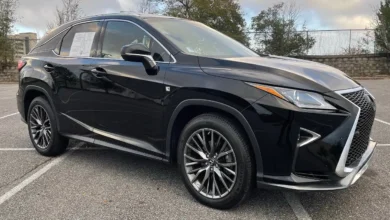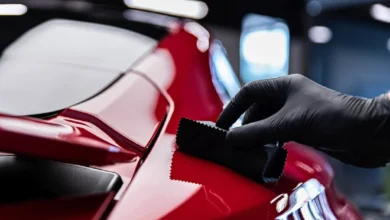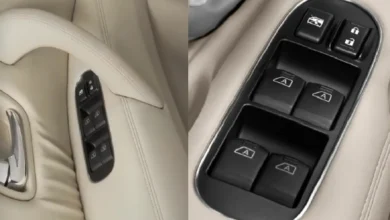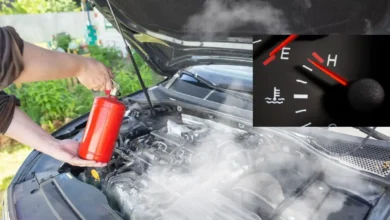
You’ve been dreaming of that roaring exhaust sound, the one that turns heads and gives your car that aggressive edge on the road. But there’s a problem. Your car’s stock muffler is keeping things too quiet, too ordinary. You’re not getting the powerful sound you crave.
Not only that, you’ve heard that a muffler delete could make your car sound like a beast, and maybe even improve performance. But you’re unsure about the cost, legality, and impact on your car’s performance. What if it’s not worth the hassle? What if the cost is too high, or worse, the modification ends up damaging your vehicle?
Luckily, there’s a solution: This detailed guide will walk you through everything you need to know about muffler deletes, including the cost, pros and cons, and the potential impact on your car. Let’s dive in and get all your questions answered!
What is a Muffler Delete?
A muffler delete involves removing the muffler from your car’s exhaust system. The muffler’s job is to reduce the noise from your engine, so by deleting it, the exhaust noise becomes louder, giving the car a more aggressive sound. This modification is popular with car enthusiasts who want their vehicle to stand out on the road.
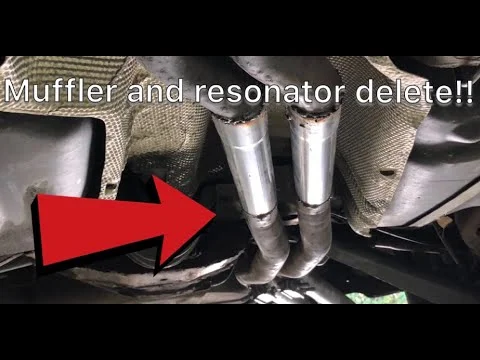
While the primary purpose of a muffler delete is to enhance sound, it can also slightly reduce the car’s weight, as the muffler is no longer a part of the system. Some people think it can improve performance by allowing exhaust gases to flow more freely, but the gains are often minimal.
Before considering a muffler delete, it’s important to weigh the costs and understand the potential impact on your vehicle.
You might also like: Comprehensive Guide to Your Vehicle’s Exhaust System
How Much Does a Muffler Delete Cost?
The cost of a muffler delete varies depending on several factors, but in general, it ranges between $50 and $300. Let’s break down what affects the price:
1. Vehicle Type
The make and model of your car play a huge role in the overall cost of the muffler delete. Performance vehicles or luxury cars may require more specialized parts or labor, which increases the price. A muffler delete on a common car like a Honda Civic will likely be on the lower end of the cost spectrum, while high-performance cars like a BMW M3 or a Dodge Charger could push the price higher.
2. Labor Costs
Labor costs can vary depending on where you live and the mechanic or shop you choose. In urban areas, labor rates are often higher than in rural areas. A professional muffler delete typically costs between $50 and $150 for labor, but this can vary depending on the complexity of the job.
3. Materials
While some vehicles may only need the muffler removed, others may require new piping or welding to ensure the exhaust system functions properly. The cost of materials can range from $30 to $100, depending on the quality of the parts and whether any additional work is needed.
DIY vs. Professional Installation
If you’re mechanically inclined, you might consider doing the muffler delete yourself. This can save you money on labor, but it’s crucial to know what you’re doing to avoid damaging the exhaust system. If you opt for a DIY muffler delete, the cost will mainly come from purchasing the necessary tools and materials, which could total around $50 to $100.
Pros and Cons of a Muffler Delete
Before diving headfirst into a muffler delete, it’s important to consider both the advantages and disadvantages.
Pros
- Louder, Aggressive Sound: The biggest advantage of a muffler delete is the enhanced exhaust sound. Your car will sound louder and more powerful, which is often the primary reason people choose this modification.
- Weight Reduction: Removing the muffler can slightly reduce the overall weight of the vehicle, improving its power-to-weight ratio, though this effect is minimal.
- Cost-Effective Modification: Compared to a full exhaust system upgrade, a muffler delete is one of the cheapest ways to modify your car’s exhaust system.
- Minimal Impact on Performance: While a muffler delete won’t significantly boost horsepower, it can allow exhaust gases to exit the system more freely, which may result in a small performance gain.
Cons
- Increased Noise: While the louder sound might be appealing at first, it can become annoying during long drives or daily commutes, especially on highways. Some drivers also experience a “drone” sound at certain speeds.
- Legal Issues: Muffler deletes are illegal in some areas due to noise regulations. If your car becomes too loud, you could face fines or fail an inspection.
- Cabin Noise: The sound inside the car can become much louder after a muffler delete, which might affect your driving comfort. It could also increase vibrations and general cabin discomfort.
- Potential Engine Light: Some modern vehicles rely on the exhaust system for various sensors, and a muffler delete could trigger a check engine light or cause slight issues with the car’s ECU.
Will a Muffler Delete Hurt Your Engine?
The short answer is No—a muffler delete won’t hurt your engine. However, there are some nuances to consider.
In most cars, the muffler is designed to reduce noise, not regulate exhaust flow. As a result, removing the muffler won’t significantly affect engine performance. However, in some modern vehicles, the exhaust system is carefully tuned with the engine management system. Removing the muffler could affect backpressure, which might trigger an error code or cause minor performance issues.
It’s also important to note that while a muffler delete won’t damage the engine, it can negatively impact fuel efficiency in some cases, depending on how the car reacts to the change in exhaust flow.
How Much Horsepower Does a Muffler Delete Add?
One common myth is that a muffler delete will significantly boost your car’s horsepower. In reality, the horsepower gains from a muffler delete are typically minimal—around 0 to 5 HP, depending on the vehicle.
The muffler itself doesn’t add much restriction to the exhaust flow, so removing it won’t drastically change performance. The small improvement comes from reducing backpressure in the exhaust system, but it’s usually not enough to be noticeable in everyday driving.
If you’re looking for a real horsepower boost, you would need to consider other modifications, like a full cat-back exhaust system, headers, or a tune.
Muffler Delete vs. Resonator Delete
You might be wondering how a muffler delete compares to a resonator delete. Both modifications affect the exhaust sound, but they work in different ways.
- Muffler Delete: As we’ve discussed, removing the muffler results in a louder, more aggressive exhaust sound.
- Resonator Delete: The resonator’s job is to “tune” the exhaust note, making it smoother and less harsh. Removing the resonator will also increase sound volume, but it tends to produce a more raw, raspy sound compared to a muffler delete.
Some people choose to do both a muffler and resonator delete for the loudest possible exhaust sound. However, this can make the car extremely loud, which may not be legal in many areas.
How to Decide if a Muffler Delete is Right for You
If you’re considering a muffler delete, here are a few things to keep in mind:
- Your Driving Environment: If you frequently drive in a city or residential area, a loud exhaust might not be ideal. On the other hand, if you enjoy driving on open roads or highways, the louder sound might enhance your driving experience.
- Legal Considerations: Always check local noise ordinances and vehicle modification laws before doing a muffler delete. Some areas have strict regulations, and you could face fines or fail a vehicle inspection if your car is too loud.
- Long-Term Impact: While the louder exhaust might be exciting at first, it can become tiresome on long drives or when driving at constant speeds. Consider whether you’re willing to live with the increased noise over time.
You Might also like: A Complete Guide to Aftermarket Exhaust Systems for Thrill Seekers
Conclusion: Is a Muffler Delete Worth It?
A muffler delete is a popular and cost-effective modification that can give your car a louder, more aggressive exhaust sound. The process is relatively inexpensive, with costs ranging from $50 to $300, depending on your vehicle and the shop you choose. While the performance gains are minimal, the aesthetic and auditory appeal of a muffler delete can be a significant draw for car enthusiasts.
Before deciding, make sure to consider the pros and cons, legal implications, and the potential impact on your driving comfort. If you’re looking for a more dramatic exhaust sound and are willing to accept the increased noise, a muffler delete might be the perfect modification for you.
We hope you found this article helpful. If you did, be sure to check out our blog for more great content like this.

